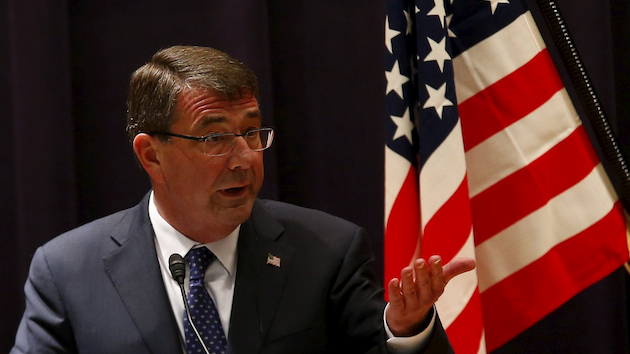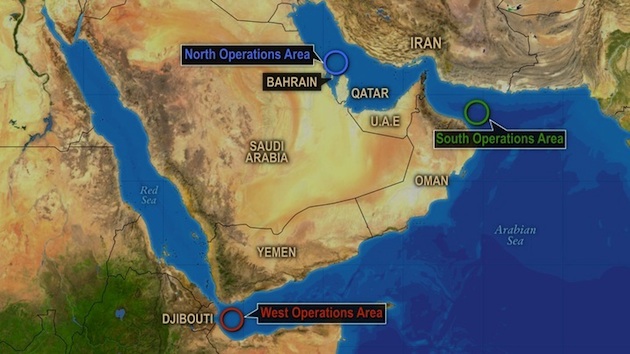

Defense Secretary Ashton Carter during a news conference in Tokyo, Japan, on Wednesday. (Photo: Thomas Peter/Reuters)
The United States is expediting shipments of arms to the Saudi coalition intervening in Yemen to halt the strategic gains of the Iran-backed Shiite Houthi rebels. The Houthis, whose official slogan is “Death to Israel, Death to America,” seized control of the capital and forced the resignation of U.S. and Saudi-backed former President Abed Rabbo Mansour Hadi in January.
The United States, which was forced to hastily evacuate its embassy from the country once cited as the administration’s anti-terror model, said it will increase support operations based on logistics and intelligence currently being provided to the coalition. But Pentagon officials tell PPD that the U.S. involvement had been rather significant prior to the decision, including already-utilized rescue assets provided for downed Saudi pilots.
Speaking in Japan, U.S. Secretary of Defense Ashton Carter said that the latest round of fighting in Yemen has benefited al Qaeda in the Arabian Peninsula, the terror group responsible for the attack on Charlie Hebdo in early Jan. and one thought to have both the most capability and “ambition to strike Western targets including the United States.”
“AQAP has seized the opportunity of the disorder there and the collapse of the central government,” Carter said. “Obviously it’s always easier to conduct counterterrorism when there’s a stable government in place. That circumstance obviously doesn’t exist in Yemen.”
But, ultimately, it is Iran that benefits the most from their proxy’s success in Yemen, as control of the Arab world’s poorest country would allow them to make good on the oft-made threat to close the Bab el Mandeb and Hormuz straits.

The Strait of Bab el Mandeb (West Operations Area) and Strait of Hormuz (South Operations Area) sandwiches the currently embattled and disputed country of Yemen.
Iran has long sought to isolate the Kingdom of Saudi Arabia, their Sunni-dominated arch nemesis across the Gulf. However, control of both the West Operations Area (Bab el Mandeb) and South Operations Area (Hormuz) through proxy states or directly would not only achieve that goal, but also allow them to gain significant control over the Middle East oil supply and global oil markets.
Though officials would not immediately comment on the potential impact this decision may have on the ongoing Iran talks, what is clear is that the developments are playing out behind a backdrop of one previously failed agreement, and another that is far from certain.
PPD previously reported in Feb. that Obama’s State Department believed they had negotiated an arraignment with the Houthis through Iran that would’ve allowed the U.S. Embassy in Sanaa to remain open, largely to conduct counter-terrorism operations against AQAP. But State Department officials were caught completely off guard by the rapidly deteriorating situation and Shiite hostility toward U.S. personnel, and even left open a secure communication link with Washington, known as OpenNet.
A Feb. 8 email revealed that when it became clear that evacuation was necessary — which, according to sources, is when officials came to grips with the reality that Tehran either couldn’t or didn’t deliver — officials began to panic.
The Obama administration last week announced a framework agreement with Iran over its nuclear program, but now plan to expedite deliveries of weapons to the Saudi Gulf coalition fighting Iran, including precision guided weapons. The United States is also supporting the military action with intelligence support through what is being described as a “joint coordination planning cell” with Saudi military officials.
On Wednesday, fighting continued as Houthi rebels pushed further south, with clashes reported in the port city of Aden.
More than 500 people, including at least 74 children, have been killed in the fighting since March 19.







